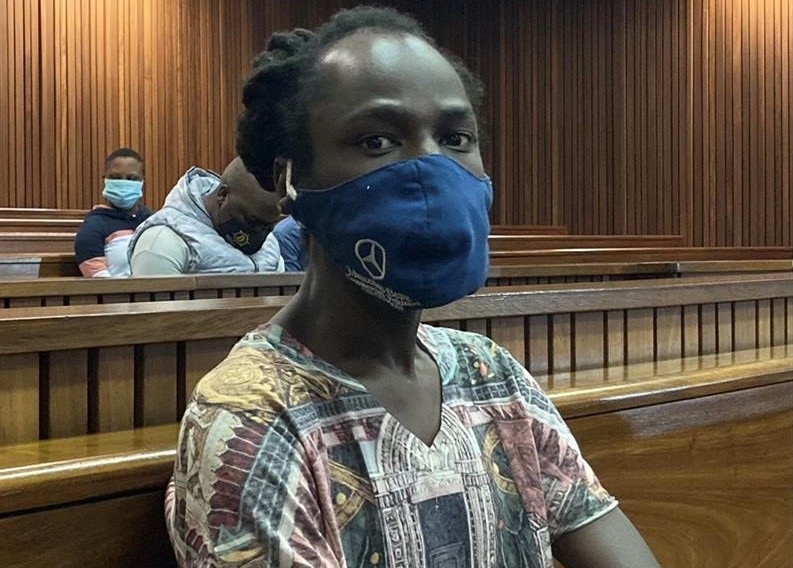
- Tanzanian national Julius Lucas was found guilty of murdering Matwetwe actor Sibusiso Khwinana.
- Lucas was sentenced to life imprisonment for the 2019 murder.
- The court described the murder as violent, horrendous and cold-blooded.
Julius Lucas robbed South Africa of a true talent when he murdered Matwetwe actor Sibusiso Khwinana for a cellphone.
These were the sentiments of Judge Portia Phahlane, who sentenced Lucas in the Gauteng High Court in Pretoria on Friday.
Phahlane sentenced Lucas to life imprisonment for murder, 15 years' imprisonment for robbery with aggravating circumstances and eight years for contravening the Immigration Act.
Lucas, a Tanzanian national, was found to have been in South Africa illegally.
Cold-blooded murder
While handing down her judgment, Phahlane detailed how Khwinana was murdered.
She said Lucas stabbed Khwinana through the heart with a sharp instrument in a "horrendous and cold-blooded manner".
Phahlane added:
Khwinana, who was 25 years old at the time, was stabbed to death by Lucas in March 2019 during a robbery at Sterland Mall in Arcadia, Pretoria.
Khwinana had just attended a screening of Matwetwe, the locally produced movie he starred in.
The actor and his friends were waiting for a taxi on the steps of the mall when Lucas grabbed his cellphone and ran away at around 23:00. Khwinana chased Lucas and caught him, which was when Lucas stabbed the actor.
Phahlane said it was clear Lucas had the intention to kill if his victim fought back on the evening he committed the robbery.
Lies, contradictions and asylum
She delved into testimony and reports on Lucas, which helped her come to the finding he was not remorseful.
Lucas maintained he did not commit the murder and was at home sleeping on the night of the incident. He never called a witness to corroborate his alibi.
Lucas claimed, without evidence, he was framed. He said this to the probation officer, who compiled a pre-sentencing report.
However, the court noted other contradictions between his testimony and the report.
Lucas told the probation officer he had a child, but in court he said it was his girlfriend's child and could not even give the correct age of the minor.
He told the probation officer he once attempted to get asylum but was told by a Department of Home Affairs official it would cost R2 500.
However, during the trial, under cross-examination, he told the court he tried to get asylum papers on numerous occasions and a friend told him it would cost R2 500.
"The accused could not explain why he kept changing his version," said the judge.
Lucas also told the probation officer he regularly paid for an asylum permit but that was established to be not true.
Phahlane further pointed out Lucas did not qualify for asylum and came to South Africa to look for job opportunities.
The court previously accepted evidence from Home Affairs that Lucas had been in the country illegally for more than 19 years.
When he was arrested, he gave police a temporary asylum permit.
However, Home Affairs said this document was fraudulent, and it had no details of Lucas on its system.
He was also found in possession of another asylum permit, which he claimed was his. It contained the details of a different person.
Life imprisonment
The court said it could find no compelling and substantial circumstances to deviate from the minimum prescribed sentences for murder and robbery with aggravating circumstances.
Phahlane said Lucas failed to appreciate the hospitality he received in South Africa. Instead, he robbed the country of a true young talent who had so much left to offer the entertainment industry.
In addition to handing down the sentences, Phahlane also ordered that Lucas be deported to his country of origin once he has served his sentence.
Leave to appeal
Following sentencing, Lucas, through his legal aid attorney, applied for leave to appeal against his conviction and sentence.
He accused the court of:
- Erring the State proved its case beyond a reasonable doubt.
- The court erred the witnesses were able to see at night.
- The court erred there was sufficient light when the deceased was killed.
- The court misdirected itself in rejecting the accused's version.
- The court erred in admitting the evidence of the ID parade.
- The court erred in finding that contradictions between witnesses were not material.
- The sentence imposed was too harsh and not in accordance with justice.
Following the State's submissions that the Court had scrutinised the evidence carefully and correctly, Phahlane went through each point made by Lucas' defence.
She dismissed every point, relaying the facts of the case and subsequently rejected the leave to appeal.
We want to hear your views on the news. Subscribe to News24 to be part of the conversation in the comments section of this article.
